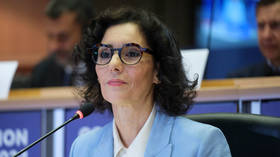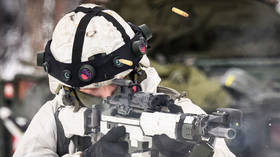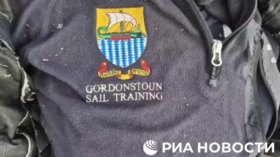EU tells citizens to stockpile food

The European Union has advised its 450 million inhabitants to stockpile essential supplies sufficient for at least 72 hours, citing increasing risks of war, cyberattacks, climate change, and disease.
EU Commissioner for Crisis Management Hadja Lahbib stated on Wednesday that the warning reflects a broader strategy to improve civil readiness across the bloc. While not mentioning Russia specifically, she stressed that the Ukraine conflict threatens European security.
"For three years in Ukraine, we have seen a battlefield of bombs, and bullets, drones, fighter planes, trenches and submarines.Yes, our European security is directly threatened by this," Lahbib said.
Several EU countries have consistently named Moscow as a significant threat to regional security. France, Poland, the Baltic states, and Finland have all raised concerns over alleged Russian cyberattacks, disinformation campaigns, and political interference. They have also described the Ukraine conflict as an example of aggressive behavior that poses a military threat to the bloc.
Today, the EU launches its new #Preparedness Strategy. “Ready for anything” — this must be our new European way of life. Our motto and #hashtag. pic.twitter.com/fA1z8ZvMDA
— Hadja Lahbib (@hadjalahbib) March 26, 2025
Moscow has consistently denied any intention to attack NATO countries or the EU. Russian President Vladimir Putin has dismissed such claims as “nonsense” meant to scare European populations and increase military budgets.
“We want people to be ready, not to panic,” Lahbib said. “Preparedness is not fearmongering – it is common sense in a time of uncertainty.”
Under the strategy, the EU is advising households to keep essential supplies, including non-perishable food, bottled water, flashlights, batteries, first-aid materials, and key documents. Citizens are also encouraged to have access to a shortwave radio in case of power or communication outages.
The EU is also planning to create a strategic reserve of key resources, including firefighting aircraft, medical transport, mobile hospitals, and stockpiles of protective equipment for chemical, biological, radiological, and nuclear incidents.
“Today’s threats facing Europe are more complex than ever, and they are all interconnected,” Lahbib said. “From war on our borders to increasingly frequent climate disasters, the EU must be ready to face the unexpected,” she added.
The initiative mirrors long-standing practices in countries such as Finland and Sweden, where civil defense preparations and emergency guidance are more established. Sweden, for example, recently updated its ‘If Crisis or War Comes’ handbook with modern scenarios, including how to respond to nuclear threats.
The Commission’s new plan includes the creation of an EU-level crisis hub to coordinate cross-border responses and ensure continuity of essential services, from healthcare to energy and telecommunications.














